
Education
What is carbonization?
Carbonization is the partial breakdown of the molecular structure of biomass at temperatures of up to 550° Celsius. This breakdown changes the nature of the biomass. Depending on the length and temperature of the process the following changes to the biomass can occur:
- Lowering of moisture content.
- Loss of mechanical strength and improved grindability, necessary for some coal fired boilers.
- The biomass becomes hydrophobic, meaning that it will not easily re-absorb water, this makes storage and handling easier, especially outside.
- Once fully carbonized, the biomass will not easily be organically decomposed as microorganisms lack the enzymes to break down the newly formed carbon structure.
Fully carbonized wood is called charcoal.
Charcoal
Charcoal is wood that is fully carbonised. This makes it burn extremely clean, making it suitable for BBQ’s and other cooking devices that do not have a chimney.
Charcoal burns without smoke, like glowing embers.
The energy density per kilo and per volume is much increased compared to raw biomass. This makes handling, transport and storage much more economical.
A drawback of charcoal, especially when made with primitive means, is that the production can be very polluting and that the wood is often not from a renewable source.
BioChar
Charcoal that is produced from a renewable resource in an environmentally responsible manner with the purpose of being applied to soil is called biochar.
Advantages of adding BioChar to soils
The purposes for which biochar is added to soils can include:
- Adding biochar to soil sequesters carbon and in so doing helps mitigate the emission of CO2 into the atmosphere.
- Due to the high porosity and high internal surface area, biochar is an excellent store of Ca, Mg, P, and K as well as microelements and beneficial Bacteria and Fungi.
- Biochar will help with water retention in free draining sandy soils whilst assisting with drainage in clay based soils
- Increases the availability of Ca, Mg, P and K in soil through adding a means of macro and micronutrient storage capacity
- Increases and maintains beneficial soil moisture content
- Stabilizes the soil
- Can increase the friability and improve the structural characteristics of the soil
- Serves as a transport route for mycorrhiza and bacteria, accelerates the intake of nutrients by the roots;
This results in:
- Increased total biomass.
- More stable soils.
- Increased plant growth
- Reduced inputs of water required to sustain plant health
- Reduced inputs of NPK required in the longer term
Because biochar is extremely slow to break down (if at all) in the soil, the benefits listed above are sustainable and long lasting.
BioChar and climate change
Plant biomass is formed through growth. This process is absorption of carbon dioxide (CO2) from the air, converting it to hydrocarbons (biomass) with the energy from sunlight and releasing Oxygen (O2). When biomass is left to decompose in an open environment, CO2 will be released back into the atmosphere. By converting waste biomass into BioChar, the biomass is partly decomposed, but further decomposition is virtually stopped, therefore stopping the further release of the carbon dioxide back into the air.
For example wood slash is a biomass that contains lots of carbon. This carbon will be released back into the atmosphere, where it would contribute to the greenhouse effect if left to rot away.
Converting this waste to biochar and adding this into soils stimulates the growth of roots, beneficial fungi, Mycorrhizae and microbes in the soil adding to the amount of carbon in the soil and reducing the amount of CO2 being released into the atmosphere.
Who uses BioChar?
The value of adding biochar to soil as a way to combat climate change and as a soil enhancer has been a practice of global, organic horticulture for centuries. However, in the western world the benefits of biochar as a soil enhancer have only recently been fully recognised and adopted. Recognition and knowledge is building quickly and the demand from horticulture, potting mix suppliers is growing.
Below are some recent NZ large scale projects where a well regarded soil specialist recommended the use of Bio Gro certified BioChar:
- Yarrow Stadium (New Plymouth)
- NZCIS (x 4 fields) Wellington
- Hamilton City Council sports field renovations
- Auckland Council – Unsworth Reserve
- Auckland Council – Scott Point (proposed)
- Lansdowne Park (Blenheim)
- Royal Auckland & Grange GC
- Tara Iti Golf Course
- Waitemata GC
Case studies
1. Biochar: How Golf Courses Can Mimic Natural Grasslands to Save 30% in Water Consumption
Key Data on Biochar from Will Bowden, New Zealand Turf Grass Management:
- 30-40% increase in volumetric soil moisture content % when using 15% biochar amendment (by weight) in a USGA spec sand
- >40% greater turfgrass root depth
- Reduction in the leaching of Nitrate (up to 78% reduction measured)
- Increase in turfgrass clipping yield
- Increase in turfgrass disease resistance
- 90% reduction in Localized Dry Spot occurrence
- Reduction in earthworm casting on the surface
- Enhanced color and uniformity (DGCI)
2. Okehampton Golf Club: Biochar trials hit a hole in one at Okehampton Golf Club | Carbon Gold
Outcomes:
- 20% fertiliser reduction
- 100% fungicide reduction
- Water retention & drainage
3. Lansdowne Park: Latest tech tracking ground breaking biochar use
Will Bowden from New Zealand Turf Management Solutions (NZTMS), a turf consultant for the Council, said Lansdowne No. 1 was the first stadium field in New Zealand where biochar has been used in a sub-section of its soil composition.
4. Yarrow Stadium main pitch project
“The Biochar is a charcoal-like substance and has the benefit of sequestering carbon, retaining nutrients and significantly reducing the amount we need to water the pitch. Our research has shown up to 70% less water can be used to maintain the turf. It’s a great way to make the turf even ‘greener’ and Yarrow Stadium is only the second stadium in the country to use it.”
5. Stockholm Biochar Project
Since March 2017, Stockholm city in Sweden has been working to address the problem of increasing waste by opening the first large scale biochar plant. This project reduces carbon emissions while engaging people in the fight against climate change. Residents provide garden waste to the city, which produces biochar.
Raw Feed Stock Products
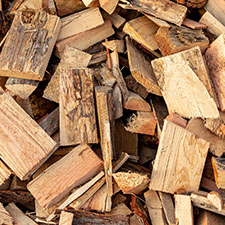
Timber offcuts
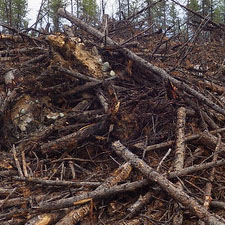
Forestry slash
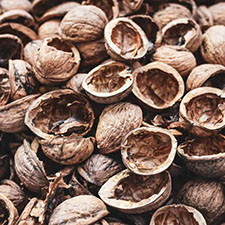
Nut shells

Woody plant waste
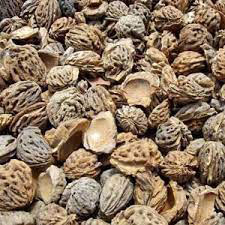
Fruit pits
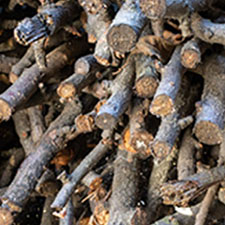
Plant prunings
- Firewood and woodworking waste of various species: pine, birch, oak, beech, hornbeam and more.
- The shells of various nuts: walnut, coconut, almond, hazelnut, etc.
- Fruit pits: olives, apricot, peach, mango, avocado and other stone-fruits.
- Maze, plant prunings
- Other woody plant waste.
INTERESTED IN PRODUCING BIOCHAR, CHARCOAL?
